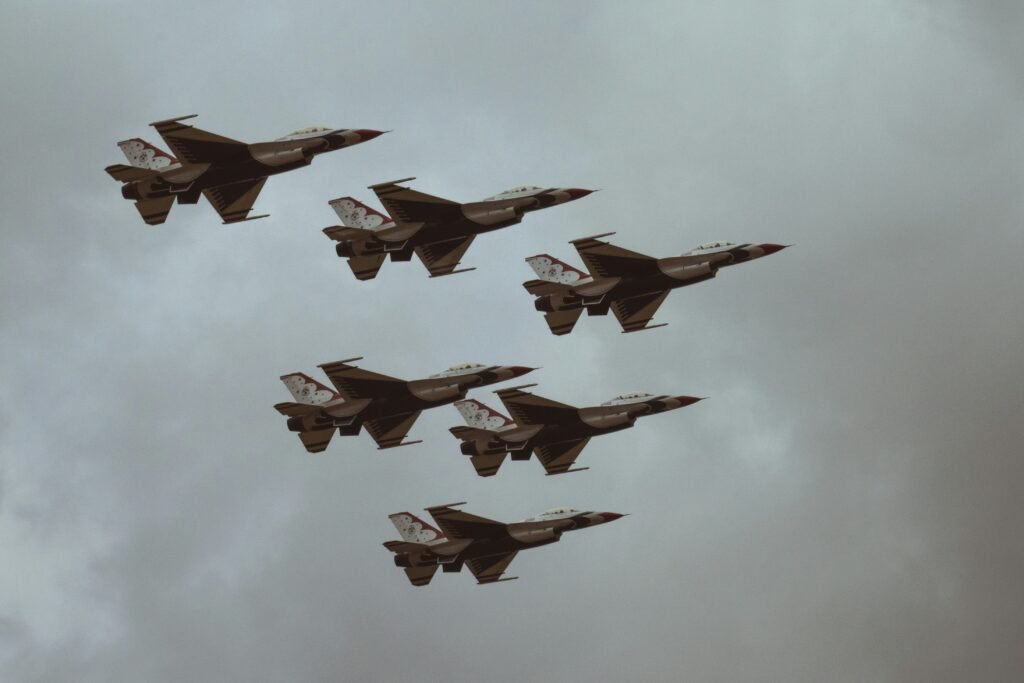The day of this post – India is on the precipice of a major conflict with Pakistan. The tragedy of the Pahalgam terrorist attack was followed by Operation Sindoor which was a success by any measure. There is retaliation along the border and citizens are taking measures to protect against a full blown war. War profiteers and mongers look on rubbing their hands.
In this post, I talk about another ‘silent but pervasive’ form of warfare, and one simple step we citizens should take to stay protected.
Personally, while I am incredibly patriotic, I find war a disgusting and senseless activity. India has historically championed the policy of non-alignment when it comes to international conflicts, and has always been measured in its response to provocations (I say this with pride). My wife is Vietnamese, and her family talks about growing up in the worst of the American bombings and even though Vietnam has come a long way and thrived since 1975, certain repercussions from the American war can still be felt (read about agent orange – discretion is advised).

I salute our brave soldiers who are willing to lay down their lives to protect you and me 🫡. I was nine years old when we won the Kargil war, I still remember crying while singing our national anthem. My dad tells me tales from the 1965 and 1971 war periods. India has never been provocative, but has always defended with might. Truly, it has always been a great time to be Indian. 🇮🇳
This post is about defense – not just in the Indian or global context, but militarily. Here I make the case that ‘real wars’ i.e. conflicts that you and I don’t see happen all the time – via the wires. Read on to understand.
India’s Defense Spending Over the Years

It’s no surprise – India’s defense budget has increased year on year. This is considering security challenges, modernisation, personnel, capability upgrades and fiscal capacity.
Table: India’s Defense Spending (2005–2025) in INR Crore
| Year | Defense Spending (INR Crore) |
|---|---|
| 2005 | 83,000 |
| 2006 | 89,000 |
| 2007 | 96,000 |
| 2008 | 105,600 |
| 2009 | 141,703 |
| 2010 | 147,344 |
| 2011 | 164,415 |
| 2012 | 178,503 |
| 2013 | 203,672 |
| 2014 | 229,000 |
| 2015 | 246,727 |
| 2016 | 251,000 |
| 2017 | 274,114 |
| 2018 | 282,733 |
| 2019 | 305,296 |
| 2020 | 323,053 |
| 2021 | 343,822 |
| 2022 | 370,000 |
| 2023 | 409,000 |
| 2024 | 521,000 |
| 2025 | 621,540* |
*2025 is the budget estimate (BE) as announced in the Union Budget 2024.
Key Insights
- Rapid Growth: Defense spending has grown more than 7x in 20 years.
- Recent Surge: The biggest jumps are seen in the last 5 years, reflecting modernization and pension commitments.
- 2025 Budget: The 2025 allocation is the highest ever, at over ₹6.2 lakh crore.
Sources
- Union Budget Documents, Ministry of Defence, Government of India
- PRS Legislative Research
- SIPRI Military Expenditure Database
- Economic Times, Times of India, The Hindu
Defense Research and Development
India’s defense budget does include research and development (R&D) expenditures. The allocation for R&D is primarily directed to the Defence Research and Development Organisation (DRDO), which is responsible for developing advanced defense technologies and supporting innovation in the sector.
For the financial year 2025-26, the budgetary allocation to DRDO was increased to ₹26,816.82 crore, which is about 3.94% of the total defense budget. Of this, a substantial portion-₹14,923.82 crore-has been earmarked specifically for capital expenditure and R&D projects. This funding supports fundamental research, technology development, and collaborative projects with private sector partners, focusing on areas such as missile technology, electronic warfare, advanced materials, and cybersecurity.
However, the share of R&D in the overall defense budget remains relatively modest compared to some other major military powers, and there have been calls for increasing this allocation to accelerate technological advancements.
And in war, technology is not just to guide a missile or a drone. It’s also to attack via more silent but damaging means, in a way that leaves longer term impacts. India has significantly increased its spending to enhance cyber capabilities, including cyber espionage and cyber warfare, but the scale remains modest compared to global leaders.
Cyber Warfare – the Hidden but Ongoing Wars
Introducing cyber warfare – the deliberate use of digital attacks to achieve military (or strategic) goals by causing disruption, destruction, or manipulation of another nation’s critical systems. hese actions can include hacking, deploying malware, conducting distributed denial-of-service (DDoS) attacks, cyber espionage, and sabotage, and are typically aimed at undermining national security, destabilizing societies, or achieving strategic military objectives.
International cyber warfare has become a significant aspect of modern geopolitical conflicts, with nations deploying sophisticated digital attacks against adversaries.
State sponsored cyber attacks are more commonplace than you’d think.
Here are a few examples:
- In December 2023, Russian hackers targeted Ukraine’s largest mobile phone provider, Kyivstar, disabling access for 24 million customers. The attackers claimed to have destroyed more than 10,000 computers and 4,000 servers.
- In November 2024, Chinese hackers (dubbed Salt Typhoon) breached at least eight U.S. telecommunications providers and telecom providers in more than twenty other countries. The attackers stole customer call data and law enforcement surveillance request data.
- In July 2023, Chinese-linked hackers breached emails of several prominent U.S. government employees in the State Department and Department of Commerce through a vulnerability in Microsoft’s email systems.
- In November 2024, Iranian hackers targeted aerospace, defense, and aviation industries in Israel, the UAE, Turkey, India, and Albania. The hackers posed as recruiters on LinkedIn and distributed malware through fake job offers.
And these are just a few that we know of – because they are reported. Who knows how many attacks are ongoing this very second that will never be reported?

Note that oftentimes, cyber warfare tactics are used by more authoritarian regimes to spy on and suppress dissidents such as the UAE. This raises questions about Government-led surveillance in the name of security, and whether privacy is actually dead. I mean, check out the Snowden archives.
India does not engage in clandestine cyber warfare operations…. or do we?
India and Cyber Warfare
India has significantly increased its spending to enhance cyber capabilities, including cyber espionage and cyber warfare, but the scale remains modest compared to global leaders.
India’s defense and national budgets have seen a marked increase in allocations for cybersecurity and digital infrastructure in recent years, reflecting the government’s recognition of cyber threats as critical to national security. The Union Budget 2025, for example, earmarked over ₹1,900 crore for cybersecurity projects and initiatives, up from ₹1,600 crore the previous year. This includes capital projects, research, and operational support for agencies like the Indian Computer Emergency Response Team (CERT-In).
Militarily, there is a clear shift in defense priorities toward cyber warfare, automated weapons, and space-based defense, with cybersecurity now seen as a pillar of military modernization and preparedness.
Some say that despite the increases, India’s cyber defense and R&D spending still lag behind countries like the US and China, both in absolute terms and as a proportion of the overall defense budget. Experts and analysts note that while the upward trend is positive, the current level may not be sufficient to close the technological gap with more advanced cyber powers.
But don’t worry.
As a Citizen, it is Enough to be Responsible with Information

What we are seeing in the news now are results of military operations and international reactions and efforts of conflict resolution (or conflict exacerbation by bad actors). But we see news of cyber warfare tactics only if they are exposed.
That means, whether there is an all-out war with guns and missiles or not, there could be any international State (or even non-State) sponsored actor that’s trying to use you and me to disrupt the societal balance and take advantage of any havoc they can cause.
As responsible citizens, at any time, information should be processed and shared… responsibly.
We must exercise heightened caution and ethical judgment especially when posting on social media. The spread of harmful, false, or inflammatory information can have severe consequences for individuals and society, especially in conflict zones.
During times of conflict, responsible citizens should exercise heightened caution and ethical judgment when posting on social media. The spread of harmful, false, or inflammatory information can have severe consequences for individuals and society, especially in conflict zones. Here are key practices to follow:
| Do’s | Don’ts |
|---|---|
| Verify information | Spread rumors or unverified news |
| Promote peace and tolerance | Incite hatred, violence, or discrimination |
| Protect privacy and safety | Share sensitive or identifying details |
| Be mindful of psychological impact | Share graphic or distressing content |
| Report harmful content | Amplify hate speech or propaganda |
And – I can’t stress this enough – do not open links or attachments you receive from unknown or unverified sources via email, WhatsApp or wherever. There are already instances of a word document being passed around via WhatsApp titled “Operation Sindoor Updates1” or something like that, and at first glance even I would have instinctively opened it. Do not!
In today’s attention-grabbing dopamine infused world, it is easy to sensationalize and spread exasperation which gets us instant gratification. While the negative impacts of engaging in “global gossiping” is not always felt, you can be sure it impacts all of us over the long term. Also, things like posting hate speech or sharing distressing content is like smoking – addictive and bad for your own health and the health of those around you.
So, while I am confident we will emerge from this period unscathed, let us take these responsible steps for the betterment of ourselves, those around us and the country as a whole. 👏🏼
And share this with that annoying uncle who sends you fake news over WhatsApp.

[…] of which are listed below – it is important to remember to stay safe from cyber warfare. Read my previous post and take note of the things you have to do to stay […]